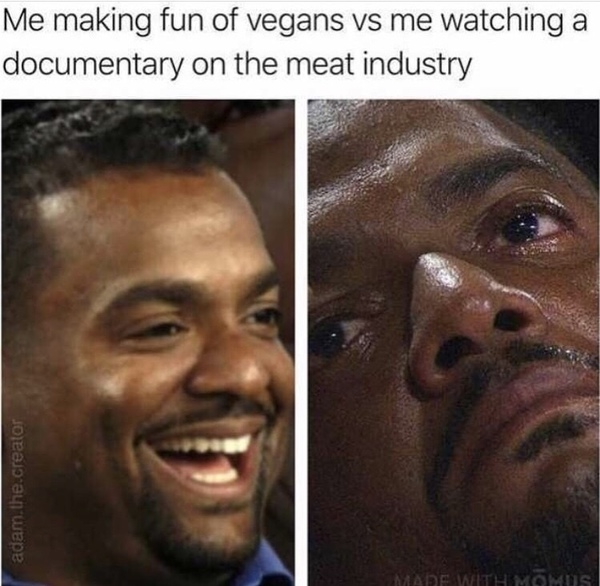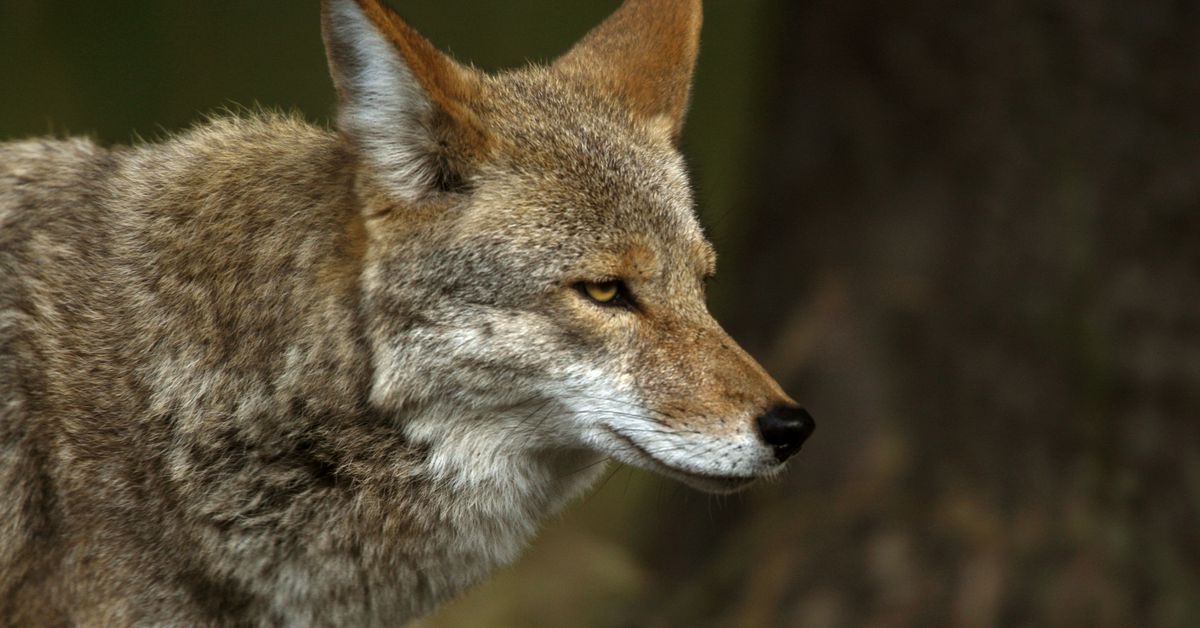
Yet another reason to be vegan.
This article together with this article:
It really means I have no choice but to be vegan.
Certainly it’s the best choice currently, but lab grown meat will be the best option for the future, offering the best of both worlds - want to eat meat? Go ahead! Want to remain vegan? No problem!
And of course Republicans are already trying their best to be emphatically on the wrong side of history yet again… 😮💨
Vegan meats are already good enough that there’s no excuse
Good enough for now, certainly. Hence my point about lab grown meat. It’s meat. It’s not an approximation, it’s the real deal.
I’m not sure it’s a case for veganism per se but the US animal ag industry is fucked beyond belief. There are ways to eat meat without supporting it though (I know 99% of people who say that don’t do that). I have one friend who is “vegetarian” but lives in a rural area. He would take meat from his neighbors, who ran farms, and eat it if it was headed for the trash
There are ways to eat meat without supporting it though (I know 99% of people who say that don’t do that). I have one friend who is “vegetarian” but lives in a rural area. He would take meat from his neighbors, who ran farms, and eat it if it was headed for the trash
This just isn’t viable on a mass scale, unless a massive proportion of the population goes vegan, leaving a infinitesimal minority relying on slightly more ethical means to eat meat.
Responsible and ethical meat farming is possible (at least in as far as not causing pain and misery to livestock). Capitalism and greed are what’s preventing it currently.
Meat definitely shouldn’t be 60%+ of anyone’s calories, though.
You cannot murder sentient beings who want to live ethically.
Yes, but it can’t supply the massive demand alone, unless there is a big reduction in meat eating. And it won’t help with emissions reduction in any significant way either.
This is the best summary I could come up with:
How these animals were targeted — from shooting coyotes to poisoning birds — has prompted Congress to fund nonlethal initiatives within the program and conservation groups to call for sweeping changes to how Wildlife Services operates.
Adrian Treves, an environmental science professor at the University of Wisconsin-Madison, said the origins of today’s rampant predator killing can be found in America’s early European settlers, who brought with them the mentality that wolves were “superpredators,” posing a dangerous threat to humans.
Last year, 68,000 coyotes were taken down by a variety of means, including ingestion of Compound 1080, a poison that causes acute pain in the form of heart blockage, respiratory failure, hallucinations, and convulsions.
One study he co-authored on wolf kills in Michigan found “a three times elevation of risk to livestock on neighboring properties after a farm received lethal control of wolves from Wildlife Services.”
But Wildlife Services’ primary goal is to protect the interests of livestock producers, USDA public affairs specialist Tanya Espinosa told me in an email — yet another subsidy for an already highly subsidized industry.
Starlings, which are targeted because they like to feast on grain at dairy farms and cattle feedlots, are mostly mass-poisoned with DRC-1339, also known as Starlicide, which destroys their heart and kidney function, slowly and excruciatingly killing them over the course of three to 80 hours.
The original article contains 1,678 words, the summary contains 225 words. Saved 87%. I’m a bot and I’m open source!
deleted by creator






